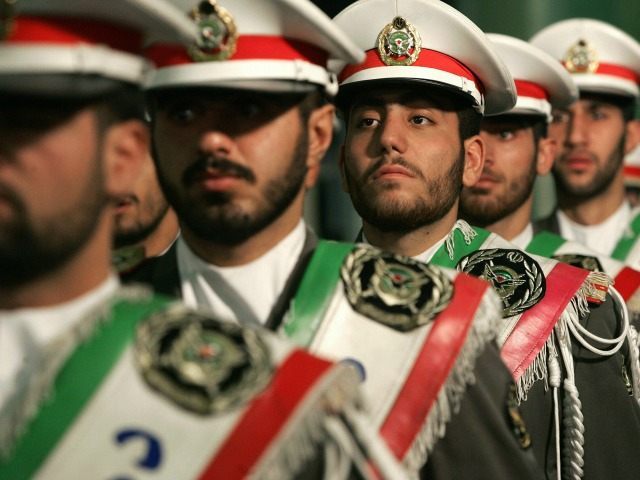TEL AVIV – Hezbollah has renewed its efforts to mediate between Hamas and Iran after a Revolutionary Guard official accused the movement of seeking a truce with Israel brokered by Turkey.
Hasro Aruj, a top commander in Iran’s elite unit, said that Hamas sees last month’s Turkish-Israeli normalization pact as an opportunity to reach a long-term ceasefire with Israel.
“In the past, Hamas championed the armed struggle against Israel, but recently we witness a different way of thinking from the one promoted by Ayatollah Khomeini, which rules out negotiating with the forces of evil,” he said.
Hamas, in turn, issued a statement condemning Aruj, saying that his accusations were “unjust and unfounded.”
“We remind everybody, including the Iranian Revolutionary Guard official, that Hamas’ policy, in theory as well as in practice, is a rejection of negotiation with the enemy,” the statement said. “Hamas will continue to champion the Palestinian resistance until the liberation and return of the refugees, with Allah’s help.”
A top Hamas official told Breitbart Jerusalem that Hezbollah has weighed in on the tension between Hamas and Iran over the last few days, given the unexpected harshness of Hamas’s reaction and the recent renewal of Iranian financial support for the movement.
Hezbollah has engaged in mediation efforts between the two parties that deteriorated significantly after Hamas officially backed the opposition to Syrian President Bashar al-Assad.
The strain was further exacerbated after the Hamas leadership was expelled from Damascus and settled in Qatar, reaching a low ebb when Iran decided to suspend its financial aid of $200 million annually and effectively breathed life into Hamas’ political as well as military budgets.
The Hamas leadership was split on its Iran policy, and the divisions have run deeper over the last two years, when it became clear that the days of the Syrian regime are not numbered, and that Turkish and Qatari support is not an adequate substitute for Iran’s.
Hamas has so far refrained from accepting Iran’s terms, fearing a backlash from its largely anti-Shi’ite constituency. Even though a Hamas delegation visited Iran earlier this year for the 37th anniversary of the Islamic revolution, none of the participants were top-level leaders.
Hamas has told Hezbollah that it demands an official apology for Aruj’s comments, which Iran has so far refused to issue, the Hamas official told Breitbart Jerusalem.
Breitbart Jerusalem reported last month that Hamas’ military wing has called for stronger ties with Iran following the Turkish-Israeli rapprochement.
Although Hamas congratulated Turkey for its efforts to alleviate Israel’s siege of the Hamas-controlled Gaza Strip, the movement came to realize that it would lead to no major changes on the ground, a Hamas source said.
Only restoring strategic ties with Iran, the source said, will allow Hamas to rearm and replenish its coffers. This view is shared by the Gaza leadership of Hamas, who are less exposed to pressure from other Arab countries that has led the leadership abroad to reject Iranian overtures, the source added.
“The external leadership will struggle to last very long, because Arab pressure is not backed up with cash,” he said. “And in any event, the Arab countries back Egypt’s efforts to restore Palestinian Authority control over Gaza.”
“The Turks are very proud that large amounts of humanitarian aid enter the Strip, but that’s an internal Turkish issue because that happens already on a daily basis,” he said.
What we need is a fundamental change that would guarantee rebuilding and alleviate people’s feeling of imprisonment, and these two things aren’t included in the deal. There’s no road map to rebuilding Gaza, and no mention of maritime passage or a seaport.
If the proponents of the deal fail to back it up by a massive cash influx, the opponents will get the upper hand and push for closer ties with Iran – including the far-reaching domestic, diplomatic, and regional ramifications they may bear, especially setting Hamas on a collision course with Israel.

COMMENTS
Please let us know if you're having issues with commenting.